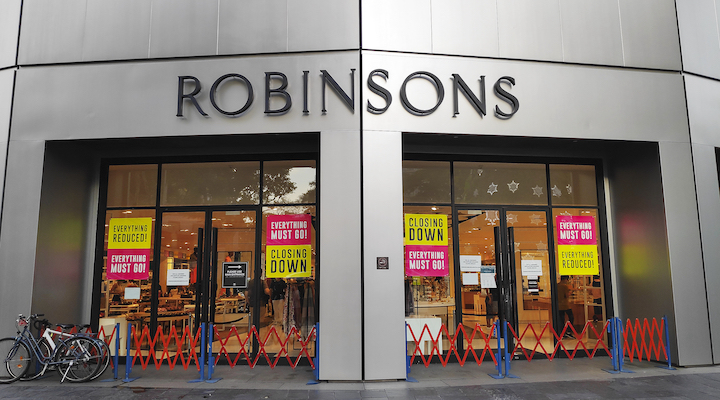Consumers have moved on: if retailers don’t keep up, they won’t survive


Dotdigital
April 28, 2023
4 mins read
Consumers are evolving faster than ever before – and retailers need to keep pace if they want their businesses to survive, warns digital marketing expert Matthew McClelland.
“The world has changed in terms of how people want to interact with you,” explains McClelland, who is head of growth, SEA, at Dotdigital. “You cannot rely on the old methods to continue to grow your business. We have to look at retail as an extension of an overarching strategy that is both facilitated and supported by digital.
“Today’s world is about people and people have moved on. If you as a business want to survive in this world, you need to adapt to their continued and rising expectations.”
He warns retailers relying on their name recognition and high customer footfalls in their physical stores fosters a false sense of security. “You know what, so did Toys R Us. So did Blockbuster. So did Robinsons in Singapore. And overnight, they became an unmitigated disaster because they did not keep up with the world that evolved around them.”
If you rely on traditional business models to achieve sales and sales growth and fail to read the market environment you are trading in, you risk being replaced, he says.
For example, across Southeast Asia, marketplaces are now setting the tone around how products are delivered. “They tell you your purchase is on its way and will be delivered by this person who will arrive between 12 and 2 on Tuesday and if no one is home we’ll try again the next day. But if you order from a traditional retailer, you might get it in three to four days, but you certainly won’t get the same level of communication, interaction, knowledge or experience around the process,” says McClelland.
He points to what he describes as disruptive “hypergrowth companies” as a major threat to traditional retail business models. The new players have largely grown out of digital marketing and from engaging with digitally native younger generations of consumers. They are pursuing growth and sales volume at the expense of profit and they don’t actually care that they own the customer experience.
“Your disruptive brands, are living the high life very much using all the social networks to drive engagement and acceptance and build communities that are their brand. They will give away owning that customer experience for hyper-growth.
“If you are a traditional retailer and you have a tunnel vision, of believing ‘We are a retailer, that’s what we’ve done and that is why we are successful’ that will ultimately lead to the death of your business in the future,” says McClelland.
“The rise of social allows you the ability to pay for access to more consumers and to give you a CRM platform. The impact of this is that retail relies on footfall, and social relies on you paying for it. You do not own your customer experience in the modern retail era – the world does.”
Traditional retailers need to evolve in order to grow. Everyone needs to look at what high-growth retail businesses and concepts are doing and understand why it is working. Again, digitally native brands and marketplaces are setting an example that is attracting customers, he explains.
“Ultimately, your customer has much higher expectations of what ‘good’ looks like because they’ve had their shopping delivered the next day after ordering it the night before. They’ve received their products on time in good packaging, handed over with instant notification of delivery. They’ve had the best – now they are not going to settle for less.
“The foundations on which you build a business are not necessarily the foundations that will continue its growth. You have to remember that your customers will move on. Whether you sell one product or multiple products, you have to diversify and differentiate yourself in some capacity. Otherwise, it will no longer be viable.”
The transition away from ‘cheap’
Today’s consumers are transitioning away from places where cheap products are stacked high on shelves, he says. They are now more interested in seeing and experiencing the products as they have essentially made up their mind to buy them by looking online.
“There is a shift away from going into a store and having a salesperson walk up to with the approach that ‘You’re in the market for TV. I’m the expert’. Today’s customer is the expert and the vast majority of the decision-making on what they are going to buy happens long before they walk into your store.”
“Take mattress shops or bed shops, for example. Why do people want to go there? They know about an extra firm, memory foam, hypoallergenic mattress because they’ve read a couple of blog articles about that. So they don’t need the store for that, they want the testing and touching experience.
“The digital disrupter brands are transitioning to retail: take Prism+ in Singapore, which started online, built a brand through social delivering great TV’s at fantastic prices, and offering incredible customer service and with huge social support. Now the company has five physical stores where the customer can see their new product lines and experience their products without the hard sell,” he concludes.
“Is this the future of commerce?”
https://insideretail.asia/2023/04/2...-if-retailers-dont-keep-up-they-wont-survive/
